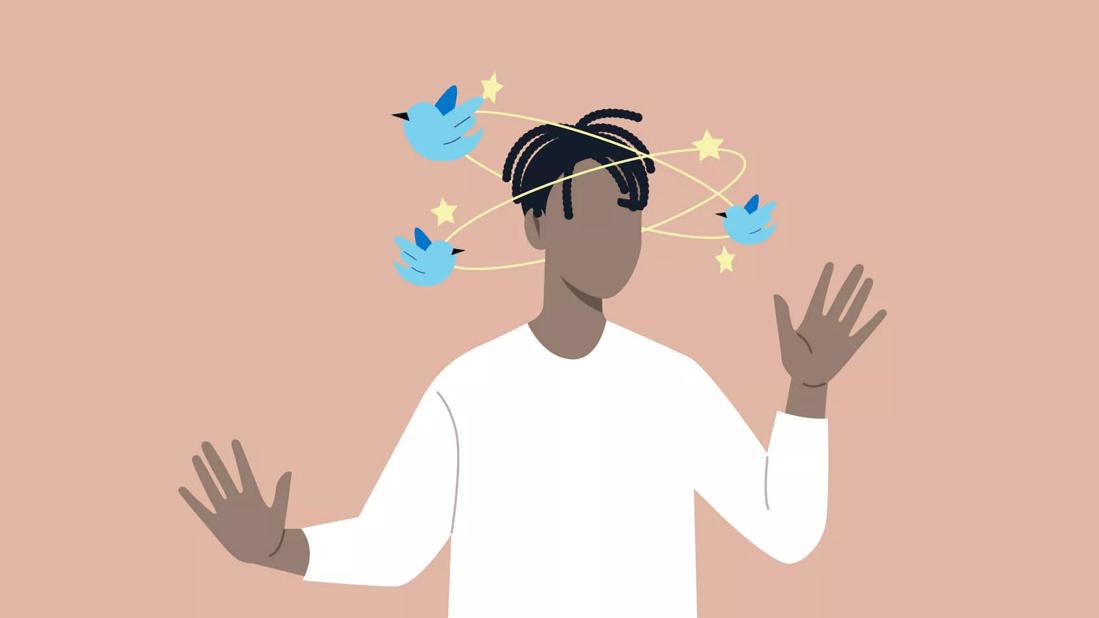Not drinking enough fluids can send your blood pressure on a rollercoaster ride

Image content: This image is available to view online.
View image online (https://assets.clevelandclinic.org/transform/c9727730-5ecb-448e-b79f-e00546c83211/Differences-Light-Headedness-Low-Blood-Pressure-1413890072-770x533-1_jpg)
Someone feeling light-headed, seeing birds and stars.
The importance of maintaining a healthy blood pressure gets a lot of attention — and rightfully so. It’s key to keeping blood flowing so it can deliver oxygen and nutrients to every nook and cranny in your body.
Advertisement
Cleveland Clinic is a non-profit academic medical center. Advertising on our site helps support our mission. We do not endorse non-Cleveland Clinic products or services. Policy
The good news? There’s something simple you can do to assist the process and keep your blood pressure stable: Drink plenty of fluids.
Being dehydrated can cause your blood pressure to plummet and then potentially skyrocket in response. In extreme cases, this wild fluctuation could send you into a life-threatening case of shock.
So, how can dehydration increase your risk of experiencing both low blood pressure and high blood pressure? Preventive cardiologist Luke Laffin, MD, explains.
Approximately 55% to 60% of your body is made of water. There’s water in your bones, water in your muscles and water in your brain. Basically, there’s a splash of H2O everywhere inside of you.
Not surprisingly, your blood is mostly water — which explains why it flows through your veins like a liquid and drips when you get a cut. There are usually about 5 quarts (1.25 gallons) of blood in your system.
Now let’s talk about dehydration.
When you’re dehydrated, it means that your body’s water supply is depleted. This can happen for any number of reasons, ranging from sweating a lot on a hot day, medications or simply not drinking enough.
Whatever the cause, that loss of fluid is felt everywhere in your body — including blood volume. Low blood volume leads to low blood pressure, meaning your organs may not get the oxygen needed to function properly.
Advertisement
“In the simplest of explanations, you’re just not filling up the pipes enough for what your vascular system needs,” says Dr. Laffin.
In the most extreme cases, this drop can cause heart or brain damage or even death.
Concerning symptoms of low blood pressure may include:
Your body has mechanisms in place to counteract when blood pressure drops to lower-than-optimal levels. That’s a good thing … unless the correction turns into an overcorrection, notes Dr. Laffin.
When you’re dehydrated, sodium levels in your blood typically rise. Your system responds by releasing more of a hormone called vasopressin, which works to help your body hang on to water.
Vasopressin also can cause your blood vessels to tighten, or constrict, which makes your blood pressure rise. (This becomes more of a concern if you’re already dealing with hypertension, or chronically high blood pressure.)
Want to avoid blood pressure issues related to hydration? Then, just make sure you’re drinking enough fluids during the day.
As a general guideline, the National Academies of Science, Engineering and Medicine recommends consuming 125 ounces (3.7 liters) of fluid per day for men and 91 ounces (2.7 liters) for women.
But your fluid intake needs may be greater, depending on factors such as weather, location and physical activity. Taking certain medications also may make you more prone to dehydration.
“Staying hydrated helps to keep your body in balance in many ways, including your blood pressure,” says Dr. Laffin. “Understanding that and being consistent about fluid intake can help keep you out of trouble.”
Advertisement

Delivered every Tuesday!
Sign up for our Health Essentials emails for expert guidance on nutrition, fitness, sleep, skin care and more.
Learn more about our editorial process.
Advertisement
Drink water, of course! But there are also other ways to stay hydrated
Body changes put older adults at increased risk of dehydration
Dehydration, medication and salty foods are often culprits
You may need more water than you might think
How to avoid dehydration while having fun in the sun
8 reasons salty mouth happens and how to treat it
These adjustments can help you maximize your workouts when the temperature rises
Treat your taste buds and replenish your water
Type 2 diabetes isn’t inevitable with these dietary changes
Applying a hot or cold compress can help with pain
Pump up your iron intake with foods like tuna, tofu and turkey